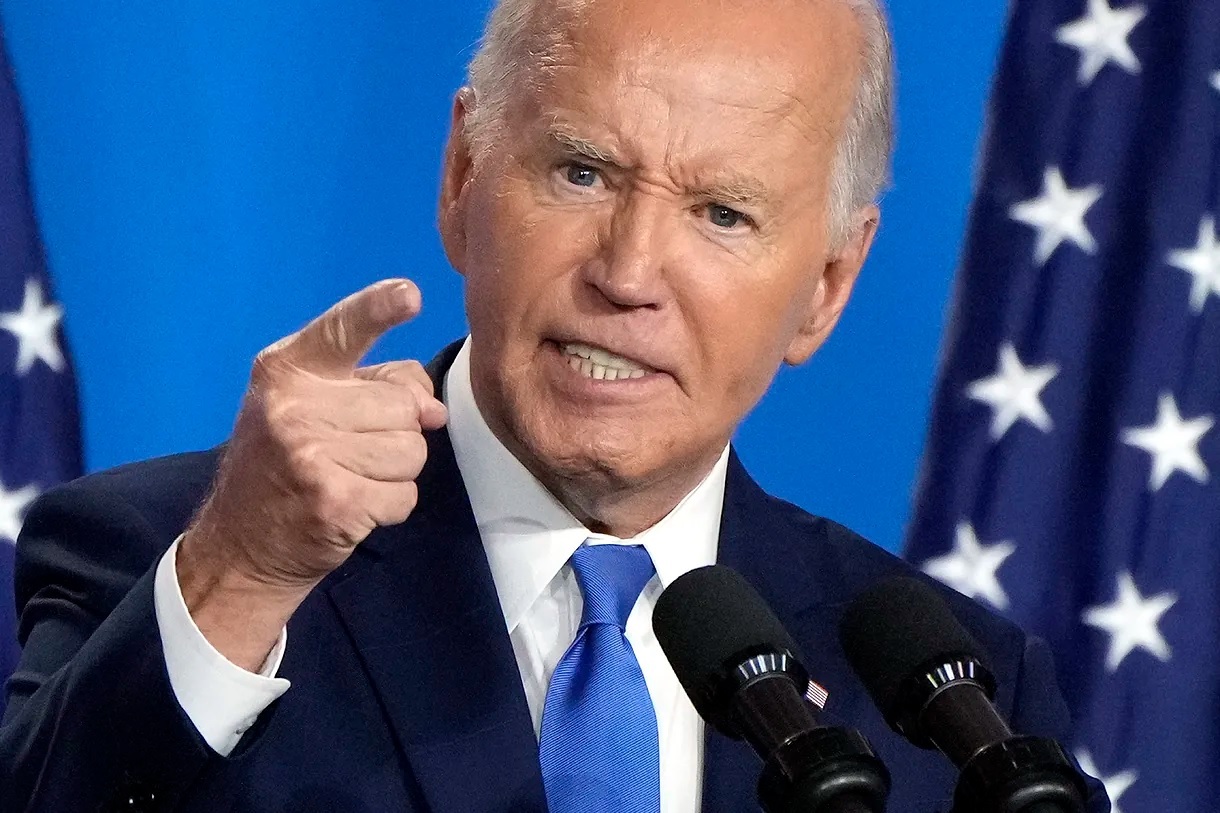From his bunker in the town of Rehoboth, Delaware, where he has his private residence, Joe Biden has reacted to the news from the New York Times that he is beginning to consider abandoning his candidacy by blatantly ignoring it. He has not even bothered to deny it. Instead, he has continued as if this were a normal campaign, by describing Donald Trump's nomination speech as "dark vision".
Biden's rhetoric towards Trump's message is similar to what Hillary Clinton used in 2016 to criticize the Republican message in that year's nomination, which, considering who won the election, does not seem like a good omen for the Democrat's campaign. He continues to trail his rival by one to three points in the polls and has not secured the majority in the six states that will decide the election. Biden has also announced that he will return to the campaign "next week," once the isolation period required by Covid-19, from which the president tested positive on Wednesday, has passed.
However, beneath the president's entrenchment, there seems to be some confusion. And at the highest level of his campaign, where there appears to be, as in the entire Democratic Party, a fracture between a hardcore of loyal Biden supporters without national political weight who work directly with him, and an outer circle of relevant political figures who do not have such a personal relationship with the president. This fault has been dramatically exposed this Friday.
First, it was the turn of the 'hardcore', from the city of Jupiter, north of Miami, Florida. There, the political program 'Morning Joe' is produced, from the Democratic news network MSNBC, where Jen O'Malley, Biden's campaign 'number two', declared that "Absolutely, the president's in this race,.You have heard from the president directly time and time again."
Two hours later, in Aspen, amidst the Rocky Mountains of Colorado, 2,500 kilometers straight from Jupiter, Senator Chris Coons, one of Joe Biden's strongest allies in Congress and also a member of his campaign, said exactly the opposite. "I think our president is weighing what he should weigh, which is: Who is the best candidate to win in November and to carry forward the Democratic Party's values and priorities in this campaign?," Coons said at the Security Forum organized annually in July by the Aspen Institute. The senator later backtracked in a message on X (the former Twitter) by proclaiming his support for Biden with a "I am with him 100%".
Coons' message had less impact than O'Malley's, for obvious reasons. It is not the same to speak on a television show followed by Washington politicians as in Aspen, a town 2,405 meters high in the middle of the Rockies. The problem is that a large part of Washington's political class was in Aspen. A simple count included five Democratic representatives, two Republican senators, the Chairman of the Joint Chiefs of Staff of the US, Charles Q. Brown, the Secretary of State, Antony Blinken, and the National Security Advisor, Jake Sullivan. Questioning Biden's leadership in that forum is, in itself, a statement of principles.
And meanwhile, in practice, the endless trickle of desertions from Biden's camp was starting to resemble an open faucet, although it is still far from the 'tsunami' that the president's critics would need to force his resignation from seeking reelection. Another senator, Martin Heinrich, from New Mexico, and five members of the House of Representatives have called for him to step down. To date, three out of fifty senators and 25 out of the 213 Democratic representatives have called for Biden to leave the campaign, in an unprecedented situation in the history of the United States.
But the great fear of many of these legislators is that Biden's relative unpopularity will end up dragging down their own voting expectations. Until relatively few years ago, US voters frequently supported different parties in each election - they could vote Democrat for the White House and Republican for the Senate, for example - but as the country has become divided into two antagonistic political blocs, electoral support goes by blocs. It's all or nothing. And if a part of the package is in bad shape - which, according to many, is the case with Biden - it is very likely that the voter will not buy it.
But even Biden's departure would not solve the crisis. Republican Senator Marco Rubio and likely Secretary of State if Donald Trump is reelected has said that if Biden resigns from his candidacy, he should also resign from the office of president. His thesis is that a person who is not fit to carry out a campaign is even less fit to lead the world's greatest power. The struggle over Biden's future continues to complicate, although from his trench in Rehoboth, he acts as if nothing is happening.
